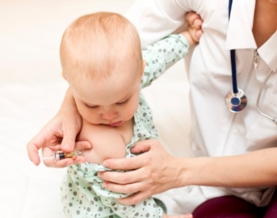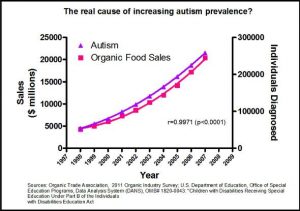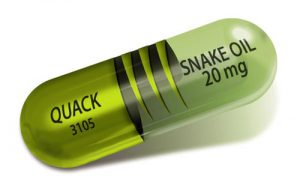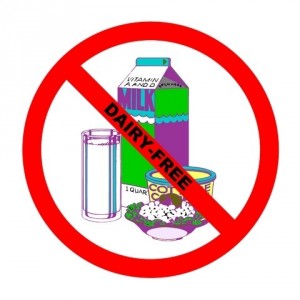Mar
05
2019
 I know this is old news – or at least it should be – but it bears repeating, especially as we are in the midst of a resurgence of measles. There is no link between the mumps, measles, and rubella vaccine (MMR) and autism, or any neurological disorder. A new study confirms this lack of association. This should go a long way to reassure the vaccine hesitant that the MMR vaccine at least is safe and should not be avoided.
I know this is old news – or at least it should be – but it bears repeating, especially as we are in the midst of a resurgence of measles. There is no link between the mumps, measles, and rubella vaccine (MMR) and autism, or any neurological disorder. A new study confirms this lack of association. This should go a long way to reassure the vaccine hesitant that the MMR vaccine at least is safe and should not be avoided.
This is a Danish study, and the largest study of the MMR vaccine and autism to date – “657,461 children born in Denmark from 1999 through 31 December 2010, with follow-up from 1 year of age and through 31 August 2013.” They found:
During 5,025,754 person-years of follow-up, 6517 children were diagnosed with autism (incidence rate, 129.7 per 100,000 person-years). Comparing MMR-vaccinated with MMR-unvaccinated children yielded a fully adjusted autism hazard ratio of 0.93 (95% CI, 0.85 to 1.02). Similarly, no increased risk for autism after MMR vaccination was consistently observed in subgroups of children defined according to sibling history of autism, autism risk factors (based on a disease risk score) or other childhood vaccinations, or during specified time periods after vaccination.
Overall there was no association between getting the MMR vaccine and later being diagnosed with autism. Further, there was no correlation when looking specifically at children who have a sibling with autism, and therefore might constitute a susceptible subpopulation. Further still, there was no clustering of autism diagnosis following the MMR vaccine administration, as might be expected if there was a causal link. This is a very large study with an adequate study design, so that if there were any increased risk of developing autism from the MMR vaccine we should be seeing it in this data – and we don’t.
Continue Reading »
Jan
24
2017
 One of the pillars of the anti-vaccine movement over the last two decades is that we are in the midst of an “autism epidemic” because autism incidence has dramatically increased over this time. This increase calls for an explanation, which, of course, they believe must have something to do with vaccines.
One of the pillars of the anti-vaccine movement over the last two decades is that we are in the midst of an “autism epidemic” because autism incidence has dramatically increased over this time. This increase calls for an explanation, which, of course, they believe must have something to do with vaccines.
Like all beliefs and movements disconnected from real science, this is a simplistic and invalid approach to a complex science, in this case epidemiology.
In medicine we are very interested in how disease rates change over historical time, and among various locations and demographics. Such information provides critical clues to the etiology (causes) of disease and the effects of various risk factors and treatments. There are many things that can change the incidence (new diagnoses over time) and prevalence (number of people with a diagnosis at any one point in time) of a disease, including the way we make and record such diagnoses.
This is always the critical question when following disease incidence over time – are there any artifacts in how we are collecting data. Are the changes in the numbers reflecting a real biological change in the population, or just a change in the behavior of physicians?
Those who warn about an “autism epidemic” are not asking these questions. They are taking the numbers at face value, because they serve a rhetorical purpose.
Continue Reading »
Oct
07
2016
 Children with autism are an especially vulnerable population. Just being a child makes you vulnerable, especially when you have any medical condition. You are in the hands of your parents, the health care system, and the state to best look after your needs.
Children with autism are an especially vulnerable population. Just being a child makes you vulnerable, especially when you have any medical condition. You are in the hands of your parents, the health care system, and the state to best look after your needs.
Unfortunately, we frequently see stories in which all three have failed to look after the needs of children (sick or not).
Another such story has surfaced: the BBC reports about a four-year old boy, recently diagnosed with autism, whose parents sought help from a naturopath. This fake doctor prescribed a dozen supplements to the boy (because that’s what they do), apparently telling the parents this would help with their son’s autism. Instead, the boy became extremely ill and would likely have died without critical intervention.
Specifically, he was given a toxic dose of vitamin D (yes, there are toxic doses of vitamins), which caused him to have dangerously high calcium levels. He developed vomiting, extreme thirst, and lost 6.5 pounds in 3 weeks. Fortunately he was treated and has recovered.
Continue Reading »
Nov
06
2015
As a general rule of thumb, if a headline contains a question the answer is usually “no.” This headline is no exception.
Thanks to the low journalistic standards at the Daily Mail, an ESP proponent by the name of Diane Powell is getting another round of media attention for her claim that children with autism can have telepathic powers, which she feels is an evolutionary compensation for their otherwise limited ability to communicate.
The story revolved around a 5-year-old boy named Ramses Sanquino, whose mother believes is a savant as well as telepathic. I tend to be skeptical of specific savant claims, even though they are well documented in some cases. I don’t doubt the phenomenon, but I have also seen cases in which overzealous parents manufacture the perception of extraordinary abilities in their children.
I was even involved in a case in which a mother believed her young child, who was non-verbal, could read in two languages on a 10th grade level. She came by this determination through facilitated communication, which is not a legitimate technique. This was a clear case of projecting her hopes onto her mute and passive child.
Continue Reading »
Jun
18
2015
 The NY Post recently published an article The miracle that cured my son’s autism was in our kitchen. It is a horrible piece of science journalism published in the “Living” section of the paper by a writer, Mackenzie Dawson, who writes about reality TV and how to organize your closet when she is not mangling science. The piece stumbles from trope to trope as it follows a tired formula.
The NY Post recently published an article The miracle that cured my son’s autism was in our kitchen. It is a horrible piece of science journalism published in the “Living” section of the paper by a writer, Mackenzie Dawson, who writes about reality TV and how to organize your closet when she is not mangling science. The piece stumbles from trope to trope as it follows a tired formula.
First open up with a heart-warming anecdote of a child “cured” by a plucky parent who would just not give up. Let a bunch of cranks explain how it all works, and sneak in one paragraph of token skepticism that you then immediately contradict. Then finish off with flourish of how amazing your star anecdote is doing. Dawson gives us an added bonus, a cherry-picked study to create the illusion she did some actual journalism.
The story is an old one – dietary restrictions to treat autism. Dawson writes:
“I remember thinking, ‘Oh my God. What are we going to do?’ ” Levin recalls. “Everyone knew autism was a lifelong disorder and couldn’t be cured.”
Except that in Ben’s case, it could be. And it was.
Continue Reading »
Sep
30
2014
 It is no longer news that Dr. Oz has long ago abandoned any pretense to scientific rigor and is simply another scaremongering hawker of snake oil and nonsense. Still, it’s hard not to marvel when he sinks to a new low.
It is no longer news that Dr. Oz has long ago abandoned any pretense to scientific rigor and is simply another scaremongering hawker of snake oil and nonsense. Still, it’s hard not to marvel when he sinks to a new low.
On a recent show Oz’s target was genetically modified organisms (GMO). This is not new for Oz, he has hosted anti-GMO activists in the past, warning his audience about non-existent health risks.
This time around Oz and his guest are claiming that pesticides used with certain GMO varieties may cause autism. Why is it always autism? It’s likely at least partly due to the fact that awareness of autism has been increasing in the last 2 decades, creating the false impression that autism itself is increasing. This leads to numerous false correlations (most famously with vaccines) and the assumption of cause and effect (often to support a preexisting bias). As you can see from the graph, however, the rise in autism diagnoses tightly correlates with increased organic food sales – but I guess you have to cherry pick the correlation you want.
The narrative that Oz spun for his audience was this: GMO is tied to pesticide use. Those pesticides are hazardous to your health, and specifically might cause autism. Organic food is pesticide free, and going organic can actually cure autism.
Every link in that chain of argument is misleading or patently wrong.
Continue Reading »
Jun
26
2014
A study has been making the rounds on social media claiming an association between prenatal exposure to pesticides and the risk of autism and developmental delay. This means that I am getting asked by many people what the study actually shows. Spoiler alert – not much. But let’s break it down.
Autism spectrum disorder (ASD) is a neurological disorder involving brain development resulting in decreased communications among neurons in the brain and characterized by reduced social ability. Our current scientific understanding is that ASD is largely a genetic disorder. While environmental factors cannot be ruled out, it seems that genes are the primary factor. It’s reasonable to search for environmental risk factors, but so far none have been clearly established.
Those who feel there likely is an environmental factor also tend to believe that there is an autism epidemic – that the incidence of autism is increasing in a way that is not easily explained by genetics, and therefore suggests and environmental factor. While it is uncontroversial that the number of ASD diagnoses has been increasing over the last two decades, this does not necessarily mean that the true incidence of ASD has been increasing.
The evidence actually shows that diagnostic substitution, broadening of the definition of ASD, and increased surveillance account for much of the increased recorded incidence. It’s possible that changes in diagnostic behavior entirely accounts for the apparent increase. It’s also possible that a subset is due to a true increase, but that has not been clearly established.
Continue Reading »
Mar
27
2014
One common feature of unscientific belief systems is that they do not change in the face of new evidence. They tend to evolve like cultural beliefs or marketing campaigns, but do not appear to be affected by scientific evidence in any meaningful way.
One great example of this is the idea the autism is linked to vaccines (to be clear up front, it isn’t) This idea had a few important factors in its origin. The first was simply the existing anti-vaccine movement searching for anything to blame on vaccines. The second, and perhaps decisive, factor was the now discredited and withdrawn study by Andrew Wakefield linking autism to the MMR vaccine.
Even as the MMR claim was dying, the anti-vaccine community was moving onto the next target – mercury (specifically the preservative Thimerosal). This was the target of the book Evidence of Harm by David Kirby. This also created common cause between the anti-vaccine movement, and separate “mercury militia” blaming many modern ills on mercury, and some environmentalists (most prominently Robert Kennedy Jr.) who are keen to blame medical problems on any environmental exposure, including mercury and/or vaccines.
Continue Reading »
Nov
07
2013
Part of the impetus for the fringe belief that vaccines are somehow causally related to the development of autism is that the signs of autism often become apparent at 2-3 years of age, after children have received many of their routine childhood vaccinations. (Average age at diagnosis is 3.1 years.) In an otherwise healthy child, the vaccines might be the only thing the parents can think of that could be a potential cause.
Signs of autism are not clinically noticeable prior to 6 months of age. From about 6-18 months the signs can be detected by careful clinical observation, but may be missed by parents. During this time parents may become slowly aware that their child is not developing as expected, and the creeping suspicion that something is not quite right often culminates in a diagnosis between age 2-3.
The phenomenon of temporal binding may then cause the parent’s memories to shift over time so that the temporal correlation between getting vaccines and signs of autism appearing become closer together. For some parents this can become a very powerful memory – my child was perfectly normal, then he received vaccines and started to show signs of autism.
Continue Reading »
Jul
01
2013
A clinic known as the Brain Treatment Center (BTC) is offering what they call Magnetic Resonance Therapy, or MRT™, as a treatment for autism and other disorders, including sleep disorders, schizophrenia, Alzheimer’s disease, emotional disorders, anxiety, addiction, and for athletic performance.
MRT (always be suspicious of a medical treatment that is trademarked) consists of transcranial magnetic stimulation along with other modalities:
…EEG, brain stimulation, Neurofeedback, EKG and other biometric techniques to provide a highly customized treatment personalized to how a patient’s brain takes in, processes, and communicates information.
I will discuss both the use of transcranial magnetic stimulation (TMS) for autism, and the specific claims made by BTC, starting with the latter.
BTC
Continue Reading »
 I know this is old news – or at least it should be – but it bears repeating, especially as we are in the midst of a resurgence of measles. There is no link between the mumps, measles, and rubella vaccine (MMR) and autism, or any neurological disorder. A new study confirms this lack of association. This should go a long way to reassure the vaccine hesitant that the MMR vaccine at least is safe and should not be avoided.
I know this is old news – or at least it should be – but it bears repeating, especially as we are in the midst of a resurgence of measles. There is no link between the mumps, measles, and rubella vaccine (MMR) and autism, or any neurological disorder. A new study confirms this lack of association. This should go a long way to reassure the vaccine hesitant that the MMR vaccine at least is safe and should not be avoided.
 One of the pillars of the anti-vaccine movement over the last two decades is that we are in the midst of an “autism epidemic” because autism incidence has dramatically increased over this time. This increase calls for an explanation, which, of course, they believe must have something to do with vaccines.
One of the pillars of the anti-vaccine movement over the last two decades is that we are in the midst of an “autism epidemic” because autism incidence has dramatically increased over this time. This increase calls for an explanation, which, of course, they believe must have something to do with vaccines. Children with autism are an especially vulnerable population. Just being a child makes you vulnerable, especially when you have any medical condition. You are in the hands of your parents, the health care system, and the state to best look after your needs.
Children with autism are an especially vulnerable population. Just being a child makes you vulnerable, especially when you have any medical condition. You are in the hands of your parents, the health care system, and the state to best look after your needs.






